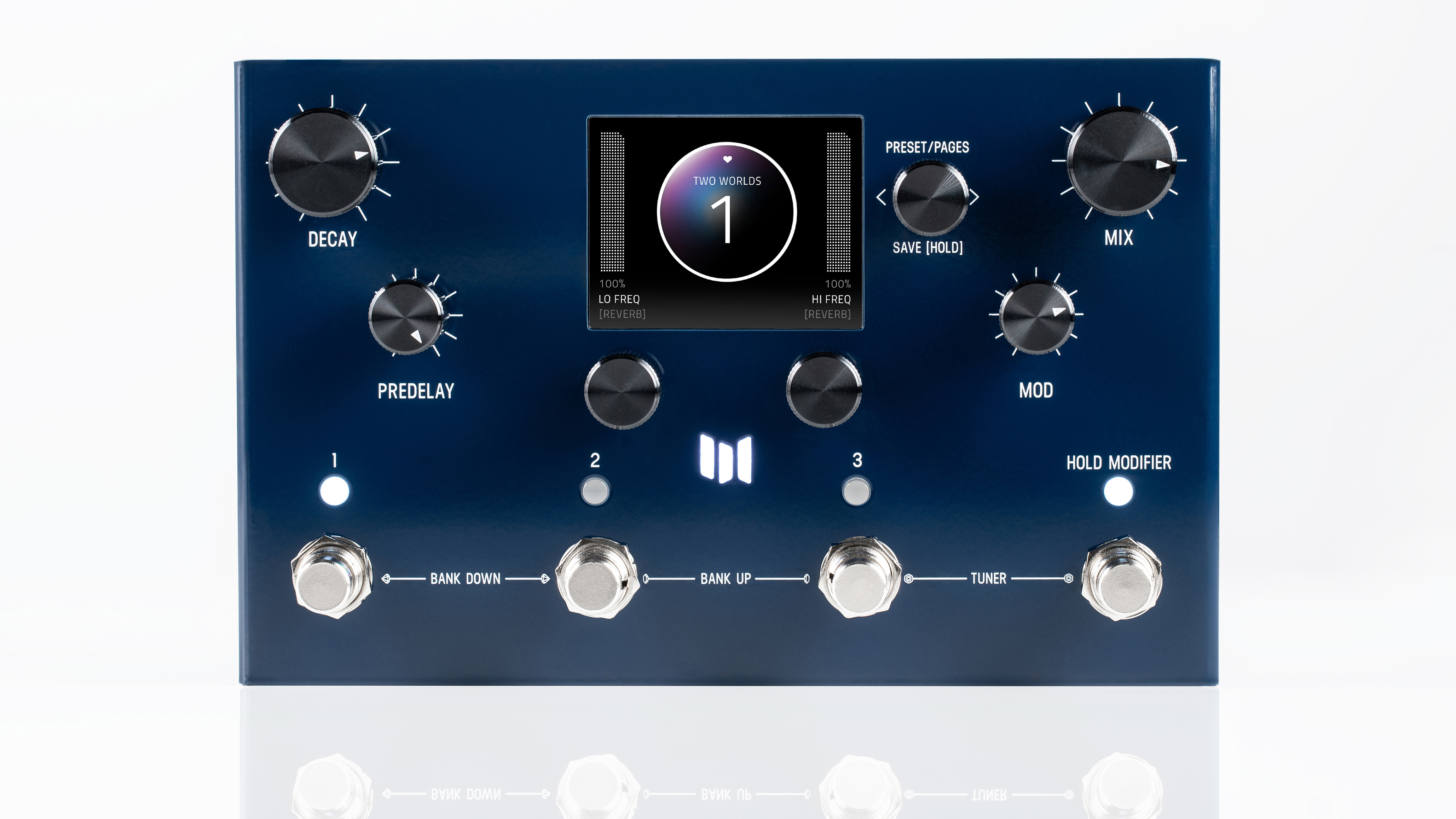
Want all the hottest music and gear news, reviews, deals, features and more, direct to your inbox? Sign up here.
You are now subscribed
Your newsletter sign-up was successful
Meris is calling its new MercuryX the most flexible and and powerful reverb in a pedal format, and from some of the brains who were involved in Line 6 and Strymon, that kind of talk carries the weight of reputation.
It boasts eight custom reverb alogorithms and combines those with the impressively advanced LVX architecture we saw on Meris's Modular Delay System.
The controls are bolstered by Meris's stunning menu screen graphics, with parameters that can be controlled by the C1 and C2 knobs beneath. This becomes the gateway to deep-dive editing with your reverb sounds, in addition to scrolling through presets and your own favourite sounds with the C3 control to the right of the screen.
The key to the MercuryX Reverb's power seems to be how much you can customise each varied algorithm's 'structure' through modular effects, including preamps, filters, pitch-shifting and modulation. There's pre-delay time and feedback editing too which starts to blur the lines between reverb and delay. It's an ambient tweaker's dream machine and the demo above sounds pretty spectacular.
As the follow-up to Meris's acclaimed Mercury 7 there's are familiar Ultraplate and Catherdra algorithms, but there's six others too, including three from the world's most expensive reverb pedal, the Chase Bliss x Meris collaboration CXM 1978.
It certainly sounds like a home recording and bedroom fiddlers' paradise from these demos, rather than the average gigging player's workhorse reverb pedal. But we'd wager the market for the former group is far bigger, and this could be some serious competition for the likes of the Strymon BigSky.
The MercuryX is $599 and available now at Meris
Want all the hottest music and gear news, reviews, deals, features and more, direct to your inbox? Sign up here.

Rob is the Reviews Editor for GuitarWorld.com and MusicRadar guitars, so spends most of his waking hours (and beyond) thinking about and trying the latest gear while making sure our reviews team is giving you thorough and honest tests of it. He's worked for guitar mags and sites as a writer and editor for nearly 20 years but still winces at the thought of restringing anything with a Floyd Rose.